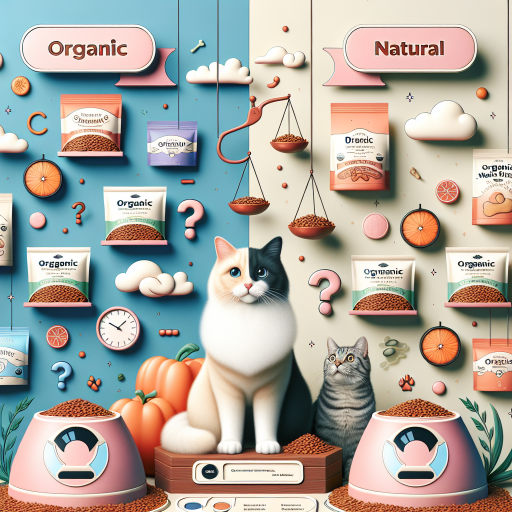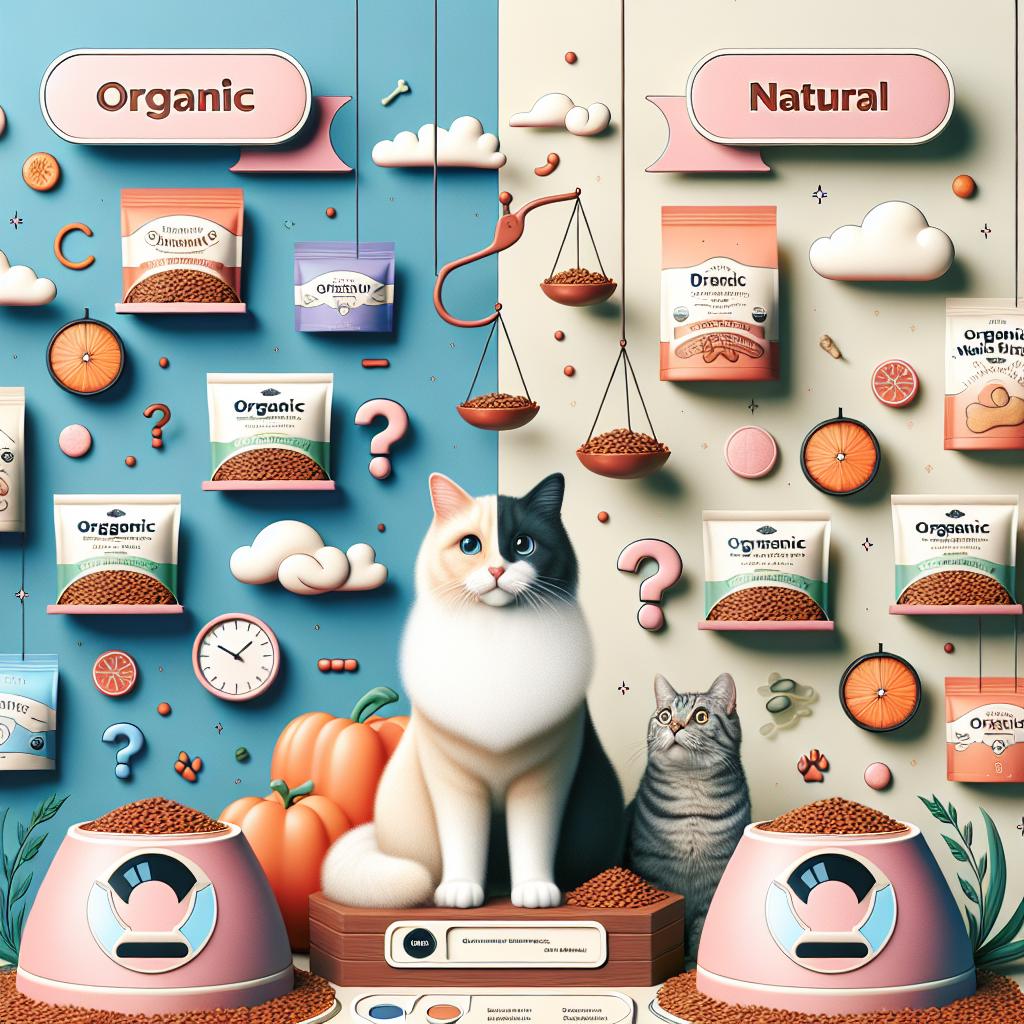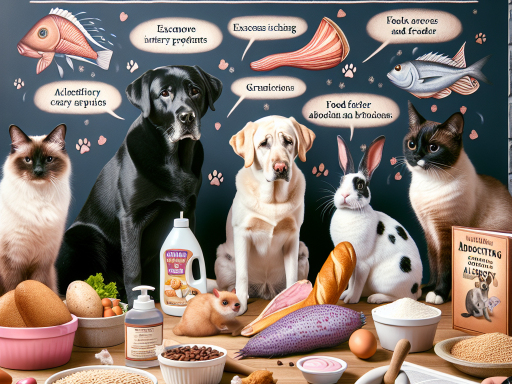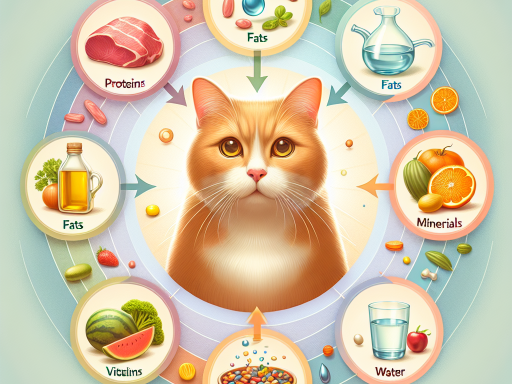Welcome to the wonderful world of organics and natural cat foods! If you’re a cat owner who wants to provide the best nutrition for your furry friend, you’ve come to the right place. In this article, we’ll explore the benefits of feeding your cat organics and natural foods, learn about the nutritional value they offer, discuss common ingredients found in these products, and provide tips on how to choose the right food for your beloved feline companion.
Benefits of Organics and Natural Cat Foods
When it comes to choosing the best food for your feline friend, organic and natural cat foods are becoming increasingly popular options. Not only are they better for the environment, but they also offer a range of benefits for your cat’s health and well-being.
- Improved Digestion: Organic and natural cat foods are often free from artificial additives, colors, and preservatives that can cause digestive issues in some cats. This means that your cat is less likely to experience stomach upset or digestive problems.
- Higher Nutritional Value: These types of foods tend to be made with high-quality ingredients that are rich in essential nutrients, vitamins, and minerals. This can help to support your cat’s overall health and immune system, keeping them strong and vibrant.
- Healthier Skin and Coat: The natural ingredients found in organic cat foods can help to promote healthy skin and a shiny coat. Omega-3 fatty acids, for example, are often included in these foods to support skin health and reduce inflammation.
- Reduced Allergies: Cats can be sensitive to certain ingredients found in conventional cat foods, such as grains, corn, and soy. Organic and natural cat foods are often free from these common allergens, making them a great choice for cats with food sensitivities.
- Supports Weight Management: Many organic and natural cat foods are formulated to help cats maintain a healthy weight. They are often lower in calories and fat, making them a good option for cats that need to shed a few pounds.
Overall, feeding your cat organic and natural cat foods can lead to a happier, healthier, and more energetic furry companion. Just like humans, cats benefit from eating a diet that is nutrient-rich and free from harmful additives. Making the switch to organic and natural cat foods may require a bit of adjustment for your cat, but in the long run, it will be well worth it for their health and well-being.
III. Nutritional Value of Organics and Natural Cat Foods
When it comes to choosing the best food for your feline friend, understanding the nutritional value of organics and natural cat foods is crucial. These types of foods are known for their high-quality ingredients and the absence of artificial additives, making them a popular choice among pet owners who prioritize their cat’s health.
Organic and natural cat foods are typically made with real, whole ingredients that provide essential nutrients for your cat’s overall well-being. These foods often contain a higher percentage of protein, which is essential for maintaining your cat’s muscle mass and overall health. Protein sources in organic and natural cat foods are usually of higher quality, such as real meat, poultry, or fish, rather than by-products or fillers found in lower-quality pet foods.
In addition to protein, organic and natural cat foods are also rich in vitamins, minerals, and antioxidants that support your cat’s immune system, digestive health, and skin and coat condition. These foods are free from artificial colors, flavors, and preservatives, which can be harmful to your cat’s health in the long run.
One of the key benefits of feeding your cat organic and natural foods is the absence of potentially harmful ingredients like corn, wheat, soy, and artificial additives. Cats are obligate carnivores, meaning they require a diet high in animal protein to thrive. By choosing organic and natural cat foods, you can ensure that your cat is getting the essential nutrients they need to lead a healthy and happy life.
However, it’s important to note that not all organic and natural cat foods are created equal. Some may lack certain nutrients or contain excessive amounts of others, so it’s essential to read the labels carefully and choose a food that meets your cat’s specific dietary needs. Consulting with your veterinarian can help you determine the best diet for your cat based on their age, weight, activity level, and any health conditions they may have.
Overall, the nutritional value of organics and natural cat foods is unmatched when it comes to providing your cat with a healthy and balanced diet. By opting for these high-quality foods, you can ensure that your furry friend is getting the nutrients they need to live a long and vibrant life. So, next time you’re shopping for cat food, consider choosing organic or natural options to give your cat the best possible nutrition.Organics and natural cat foods are becoming increasingly popular among pet owners who want to provide their furry friends with high-quality, wholesome nutrition. When it comes to choosing the right food for your feline companion, understanding the common ingredients found in organics and natural cat foods is key.
1. Protein Sources:
Protein is an essential component of a cat’s diet, as they are obligate carnivores and require a diet rich in animal-based proteins. Common protein sources in organics and natural cat foods include deboned meats like chicken, turkey, and fish. Look for foods that list a specific protein source as the first ingredient, as this indicates a higher quality product.
2. Whole Grains:
While cats are primarily carnivores, some natural cat foods may contain whole grains like brown rice, oats, or barley. These grains can provide additional fiber and nutrients, but it’s important to ensure that they are not the main ingredient in the food. Cats have a limited ability to digest carbohydrates, so opt for foods with minimal grain content.
3. Fruits and Vegetables:
Organics and natural cat foods may also contain fruits and vegetables like cranberries, carrots, and peas. These ingredients can provide antioxidants, vitamins, and minerals that contribute to overall health. However, it’s essential to make sure that the majority of the cat’s diet consists of animal-based proteins.
4. Essential Fatty Acids:
Omega-3 and Omega-6 fatty acids are crucial for a cat’s skin, coat, and overall health. Look for ingredients like fish oil or flaxseed, which are rich sources of these essential fatty acids. Including these ingredients in your cat’s diet can help support their immune system and promote healthy skin and coat.
5. Natural Preservatives:
Organics and natural cat foods often use natural preservatives like tocopherols (vitamin E) or rosemary extract to maintain freshness. Avoid foods that contain artificial preservatives like BHA, BHT, or ethoxyquin, as these can have potential health risks for your cat.
By understanding the common ingredients found in organics and natural cat foods, you can make an informed decision when choosing the right food for your feline friend. Remember to always read the ingredient list carefully and opt for products that prioritize high-quality proteins, essential nutrients, and natural ingredients. Your cat’s health and well-being are worth the extra attention to detail when selecting their food.
Ultimately, providing your cat with a balanced diet that meets their nutritional needs is essential for their overall health and longevity. With the right knowledge and guidance, you can ensure that your furry companion enjoys a diet that supports their well-being and keeps them happy and healthy for years to come.In the world of cat food, there’s a growing trend towards organics and natural options. While these products can offer numerous benefits for your feline friend, it’s important to be aware of some potential drawbacks as well. Let’s dive into some key points to consider when it comes to organics and natural cat foods.
**Potential Drawbacks of Organics and Natural Cat Foods:**
1. **Cost:** One of the main drawbacks of organics and natural cat foods is the cost. These products tend to be pricier than conventional cat foods due to the higher quality ingredients used. However, many pet owners feel that the health benefits outweigh the additional cost.
2. **Limited Availability:** Another potential drawback is the limited availability of organics and natural cat foods. Not all pet stores carry these products, so you may need to do some research to find a store that stocks them. Additionally, some brands may only be available online, which can be inconvenient for some pet owners.
3. **Variability in Quality:** While organic and natural cat foods are generally held to higher standards, there can still be variability in the quality of these products. It’s important to do your research and choose a reputable brand that uses high-quality ingredients and follows strict manufacturing processes.
4. **Palatability:** Some cats may be picky eaters and may not take to organics and natural cat foods right away. It may take some trial and error to find a product that your cat enjoys and that provides all the necessary nutrients.
5. **Transition Period:** When switching your cat to an organic or natural diet, it’s important to do so gradually to avoid any digestive upset. Slowly introduce the new food by mixing it with their current food over a period of a week or two.
While there are some potential drawbacks to consider, the benefits of organics and natural cat foods often outweigh the negatives. By choosing high-quality products that are nutritionally balanced and free of artificial additives, you can provide your cat with a diet that supports their overall health and well-being.
When selecting an organic or natural cat food, be sure to read the label carefully and look for key ingredients such as real meat, fruits, and vegetables. Avoid products that contain fillers, by-products, and artificial preservatives. Consult with your veterinarian if you have any concerns or questions about switching to an organic or natural diet for your cat.
Ultimately, the decision to feed your cat organics or natural cat food is a personal one that should take into consideration your cat’s individual needs and preferences. With a little research and some trial and error, you can find a product that works well for your feline friend and provides them with the nutrition they need to thrive.
VI. How to Choose the Right Organics and Natural Cat Food
So, you’ve decided to make the switch to organics and natural cat food for your furry friend – congratulations! But with so many options out there, how do you know which one is the best for your cat? Don’t worry, I’ve got you covered with some tips on how to choose the right organics and natural cat food:
1. Look for Quality Ingredients: When browsing through different brands, make sure to check the ingredient list. Look for high-quality, natural ingredients like real meat, fruits, and vegetables. Avoid artificial additives, fillers, and by-products.
2. Consider Your Cat’s Age and Health Needs: Just like humans, cats have different dietary requirements based on their age, size, and health conditions. Choose a cat food formula that is tailored to your cat’s specific needs, whether they are a kitten, adult, or senior cat.
3. Check for AAFCO Approval: The Association of American Feed Control Officials (AAFCO) sets standards for pet food nutrition. Look for cat foods that have been approved by AAFCO to ensure that they meet the necessary nutritional requirements for your cat.
4. Consult with Your Veterinarian: If you’re unsure about which organics and natural cat food to choose, don’t hesitate to consult with your veterinarian. They can provide valuable advice based on your cat’s individual needs and help you make an informed decision.
5. Consider Your Budget: While organics and natural cat foods may come with a higher price tag, it’s important to consider the long-term health benefits for your cat. However, if you’re on a tight budget, there are still affordable options available that prioritize quality ingredients.
6. Read Reviews and Do Your Research: Before making a purchase, take the time to read reviews from other cat owners and do your own research on different brands. Look for reputable companies with a track record of producing high-quality organics and natural cat foods.
7. Introduce New Food Gradually: When switching your cat to a new organics and natural cat food, it’s important to do so gradually to prevent any digestive upset. Mix small amounts of the new food with their current food and gradually increase the ratio over a week or two.
By following these tips, you can ensure that you’re choosing the right organics and natural cat food for your feline friend. Remember, a healthy diet is key to keeping your cat happy and thriving!
Conclusion and Final Thoughts
So there you have it – a comprehensive guide to organics and natural cat foods! We’ve covered the benefits, nutritional value, common ingredients, potential drawbacks, and how to choose the right option for your furry friend.
As a responsible pet owner, it’s essential to prioritize the health and well-being of your cat. By opting for organics and natural cat foods, you are making a conscious choice to provide your cat with high-quality, nutrient-rich meals that promote their overall health and longevity.
When it comes to choosing the right organics and natural cat food, remember to look for products that are made with high-quality ingredients, free from artificial additives and fillers. Consider your cat’s age, activity level, and any specific dietary needs they may have when selecting the perfect food for them.
It’s also crucial to consult with your veterinarian before making any significant changes to your cat’s diet. They can provide valuable insights and recommendations based on your cat’s individual needs and health status.
In conclusion, organics and natural cat foods offer a host of benefits that can positively impact your cat’s health and well-being. By making informed choices and prioritizing quality nutrition, you are setting your cat up for a happy, healthy life.
Remember, your cat relies on you to make the best decisions for their health and happiness. So why not start by choosing organics and natural cat foods that will nourish and support them in the best way possible? Your furry friend will thank you for it in more ways than one!





